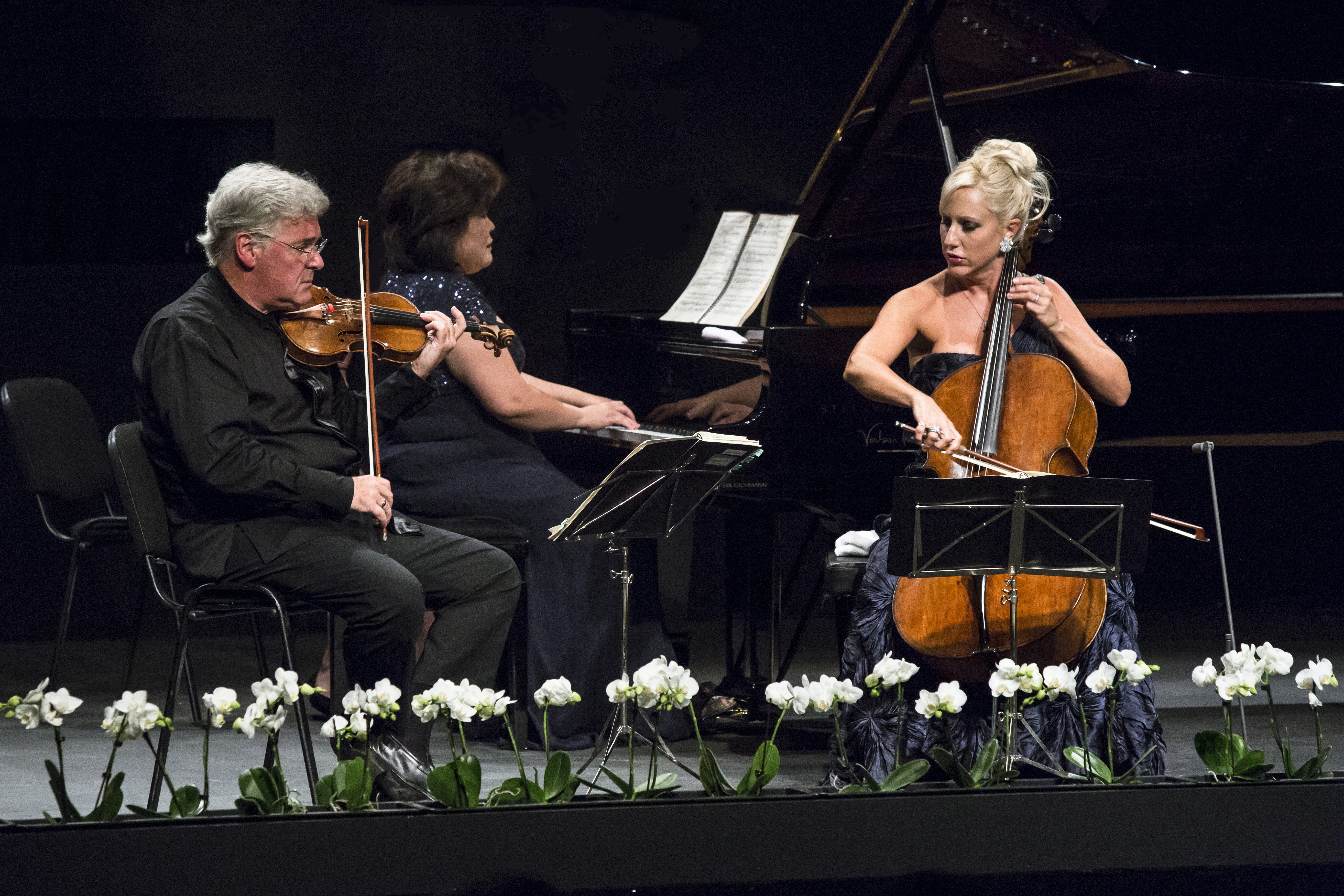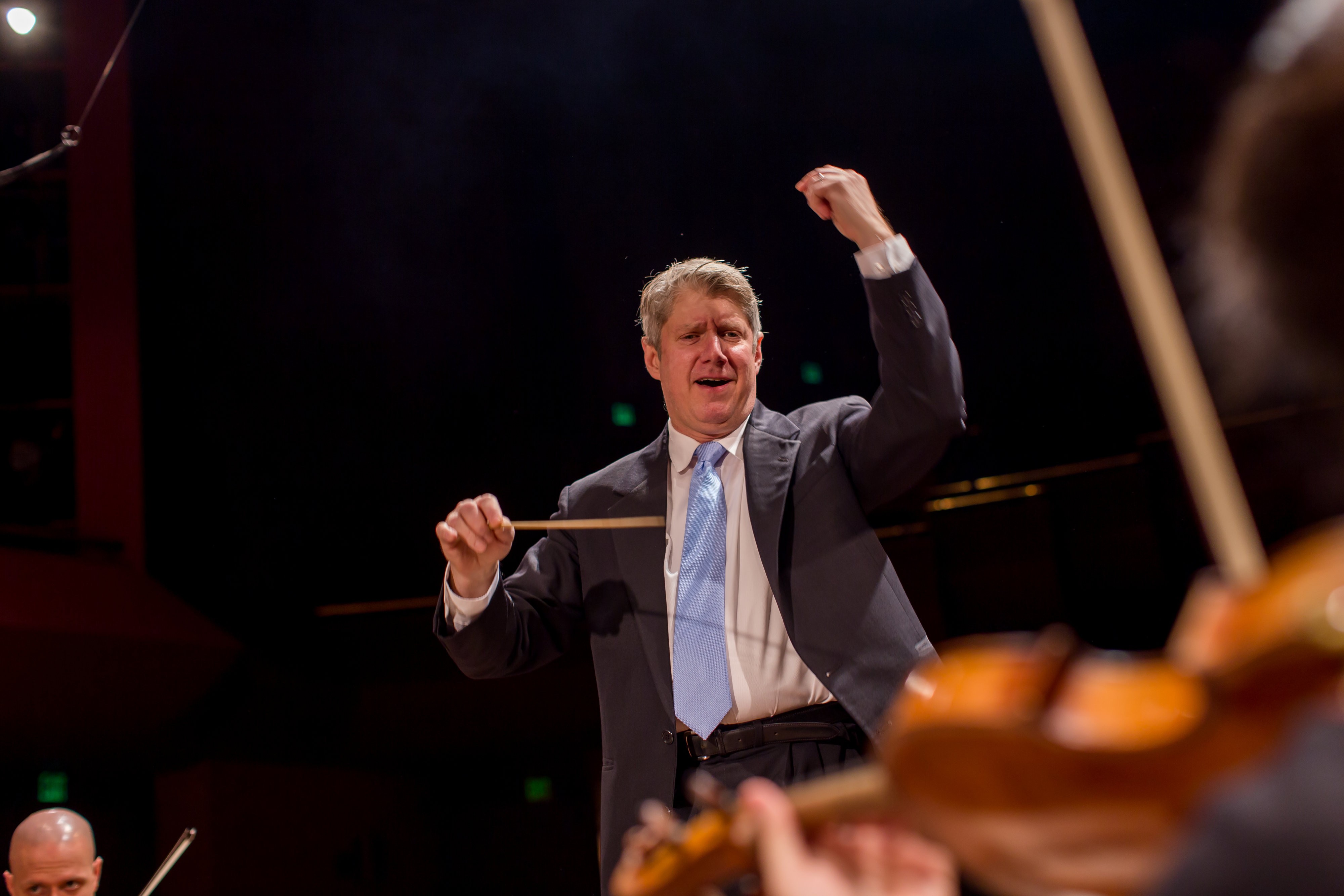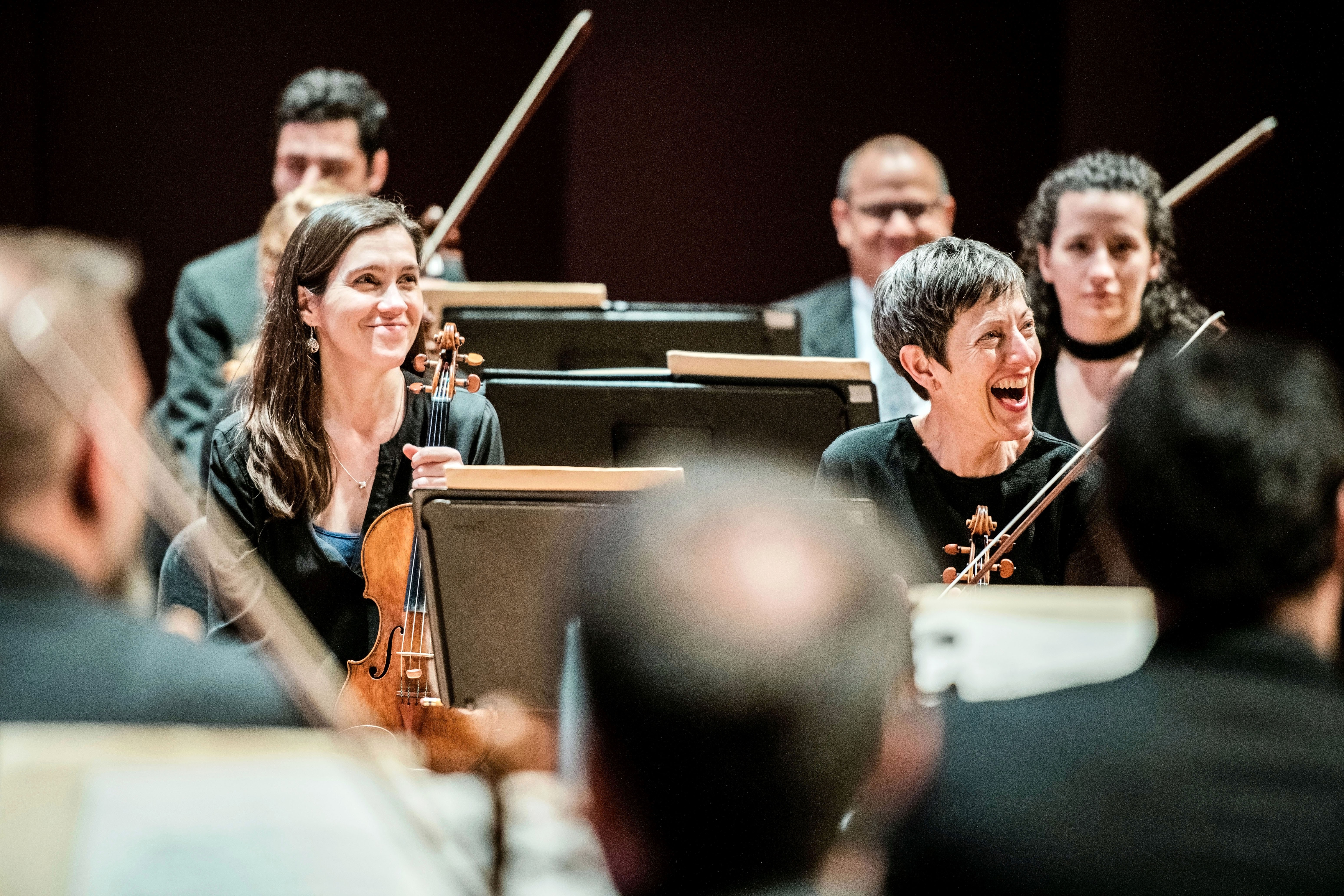
The Zukerman Trio
This past weekend’s performance by the Iris Orchestra, complemented by the Zukerman Trio, was highly anticipated all around. As noted in October, the entire current season is loaded with significance on the most personal, local, and global levels. As the orchestra’s conductor, Michael Stern, said then, “We have a rather happy confluence of anniversaries. It’s the 20th anniversary of Iris…And we’re celebrating 250 years of Beethoven…There’s also the anniversary of my father, Isaac Stern, who would have been 100.”
Last Saturday and Sunday’s offerings, the second weekend of Iris’ season, resonated with all of those milestones, perhaps most powerfully with the centenary of Isaac Stern. As Michael Stern noted to the audience at the Germantown Performing Arts Center (GPAC) Saturday night, his father was at first skeptical of this somewhat unorthodox ensemble when it was launched, asking, as Michael put it, “What is my son doing in Tennessee?”
 Michael Allen
Michael Allen
Michael Stern
With bittersweet emotion, he then recalled how his father warmed to the idea of Iris, an orchestra of world-class players who converge in Memphis on a regular basis, inviting notable guest performers as each season unfolds. The most telling moment was when the father asked the son, “When are you going to invite me?”
That was in 2001, and arrangements were made to feature Isaac Stern, backed by Iris, that December. Everything changed when the legendary violinist died in September. As his son described it, his memory was instead honored in Memphis when Iris backed Jaime Laredo, Yo-Yo Ma, and Emanuel Ax, who had recorded with the elder Stern as a quartet.
Michael Stern also noted the special connection between his father and the namesake of the trio hosted this week, Pinchas Zukerman. Hearing Zukerman play at the age of nine in Israel, the elder Stern promptly facilitated his enrollment at The Juilliard School, and the rest is history: Zukerman is now one of the most celebrated violinists of our time.
However, Saturday’s concert began with the Iris Orchestra on its own. And from the first notes of Beethoven’s Coriolan Overture, it was made clear what a treasure to Memphis the orchestra really is. It was a fittingly grandiose opening salvo, but it was the next piece, Beethoven’s Symphony No. 4, which really showed the orchestra’s full range. This symphony in particular, full of coordinated, rhythmic hits in sync with the timpani, can truly be said to “rock,” and can show off an orchestra’s power. But it was in the quieter moments that Iris displayed its sensitivity. The subtle moments revealed an organic lightness of touch that was all the more moving by way of contrast. Moments featuring pizzicato cello patterns felt like an unfolding flower.  Phillip Van Zandt
Phillip Van Zandt
Iris Orchestra
These strengths were all the more apparent once the Zukerman Trio took the stage to perform the Concerto for Violin, Cello & Piano, Op.56 (Triple Concerto). Amanda Forsyth, cello, and Angela Cheng, piano, looked resplendent, and Forsyth was an especially striking presence on the cellist’s pedestal. Zukerman was in more reserved attire, but his gravitas was commanding.
The orchestra’s lightness of touch provided a perfect setting for the more commanding tonalities of the trio, with Zukerman’s almost Klezmer-like sonority, Cheng’s rhythmic, rolling piano arpeggios, and Forsyth’s melodic passages in the cello’s higher registers being especially captivating.
On the next day, audiences were able to hear the trio, as Stern facetiously noted in his introductory remarks, “without the pesky orchestra” behind them. And that too was a revelation. The intimacy of the Brooks Museum of Art, where the featured artists of Iris’ season always perform on Sundays, was an ideal setting for appreciating the trio’s almost telepathic connection in even the most rubato passages of Beethoven’s Archduke Trio.
As a weekend exclusively devoted to the works of Ludwig van Beethoven, it was a revelation. This December 17th will mark the 249th year since his birth, and next year the world will celebrate his 250th anniversary. As Stern noted in October, “Nobody needs to rescue him from obscurity,” but his very omnipresence can numb us to the rare beauty and innovation of his works. Yet here in Memphis, where we can boast the unique collective project of the Iris Orchestra, it was all made new again, as the players leapt once more unto the breach, breathing life into some of the greatest music ever conceived.
The Iris Orchestra, conducted by Michael Stern, will next perform on January 25 (GPAC) and 26 (Brooks Museum), 2020, featuring a specially commissioned work by Conrad Tao, “Spoonfuls,” celebrating Memphis’ bicentennial, performed with the composer on piano.